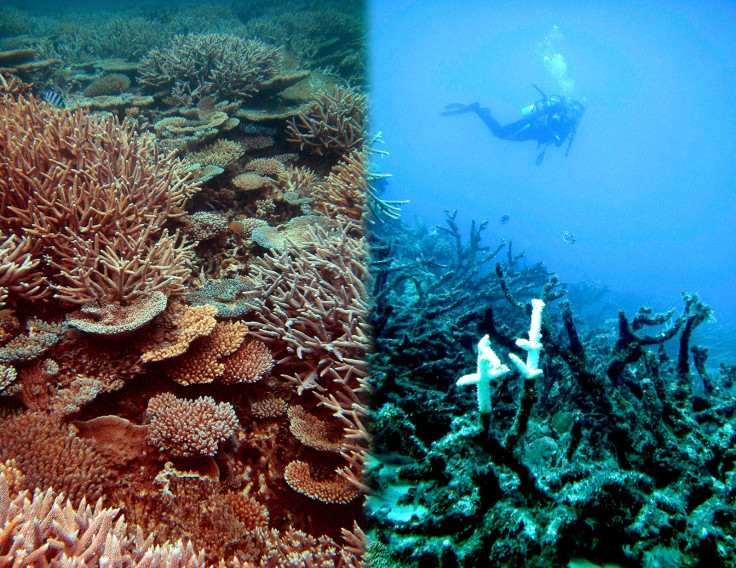World's coral reefs doomed even if COP21 is 'wildly successful' expert says

Coral reefs, as they were 50 years ago, will not be found anywhere on Earth by the middle of the century, an expert has warned. Professor Peter F Sale, from the University of Windsor, Canada, claims the world's coral reefs cannot be saved – even if the climate change talks in Paris in December (COP21) are "wildly successful".
Presenting at a Plenary session analysis at the Goldschmidt conference in Prague, Sale said: "Even if Paris is wildly successful, and a treaty is struck, ocean warming and ocean acidification are going to continue beyond the end of this century. This is now serious; I find it very unlikely that coral reefs, as I knew them in the mid-1960s, will still be found anywhere on this planet by mid-century. Instead, we will have algal-dominated, rubble-strewn, slowly eroding limestone benches.
"I see little hope for reefs unless we embark on a more aggressive emissions reduction plan. Aiming for CO2 at 350ppm, or a total warming of around 1C is scientifically defendable, and would give reefs a good chance; a number of coral reef scientists have called for this." At present, world leaders hope to reach climate change agreements that will lead to global temperatures increasing by no more than 2C by the end of the century.
Ocean acidification is considered a major threat to the world's coral reefs. Last year scientists from the Carnegie Institution in Washington DC said coral growth rates in Australia's Great Barrier Reef have fallen by 40% over the last 40 years – a drop they have largely attributed to the absorption of CO2 into the ocean.

Similarly, a more recent study from the Potsdam Institute for Climate Impact Research in Germany found it will take more than 700 years to reverse ocean acidification to the point of pre-industrial conditions – even with aggressive CO2 removal techniques.
Sale noted, however, that it is not just CO2 emissions that politicians should be concerned about when it comes to "other insults" to the world's oceans: "We have lost 90% of our commercial fish biomass since the 1940's, we are polluting coastal waters, and the great majority of marine protected areas are not being protected. Either we agree limits, which means the end of the' high seas', or we let large parts of the seas die.
"Knowing what we are doing, do we have the ethical right to eliminate an entire ecosystem from this planet? It's never been done before. But watching as our actions lead to the loss of all coral reefs on the planet is like removing all rainforests. I don't believe we have that right".
John Veron, former chief scientist of the Australian Institute of Marine Science, added: "The extreme gravity of the current predicament is now widely acknowledged by reef and climate scientists. They also accept that only drastic action starting now will prevent wholesale destruction of reefs and other similarly affected ecosystems. Should humanity not be successful in preventing these threats from becoming reality, no amount of management or expenditure will save future generations from the consequences of our failed guardianship."
Embargo 11pm
© Copyright IBTimes 2025. All rights reserved.






















